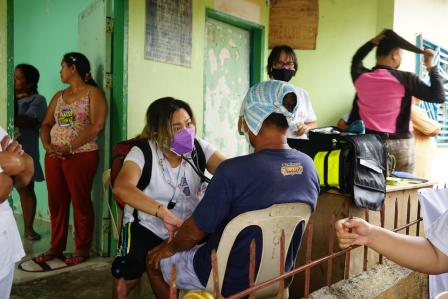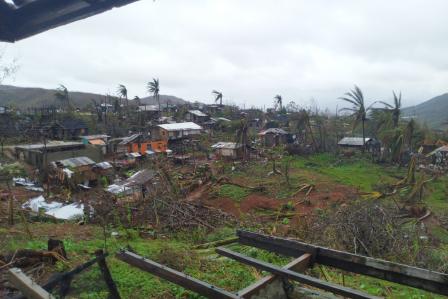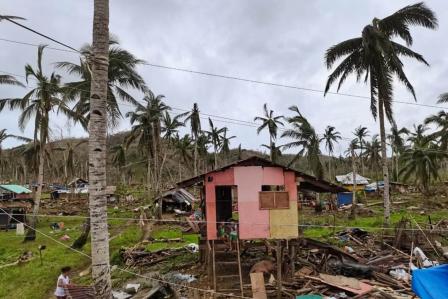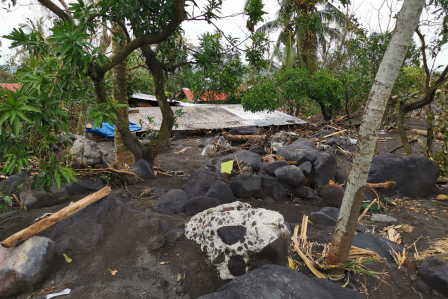The Philippines: Medical and mental health needs continue after Typhoon Rai
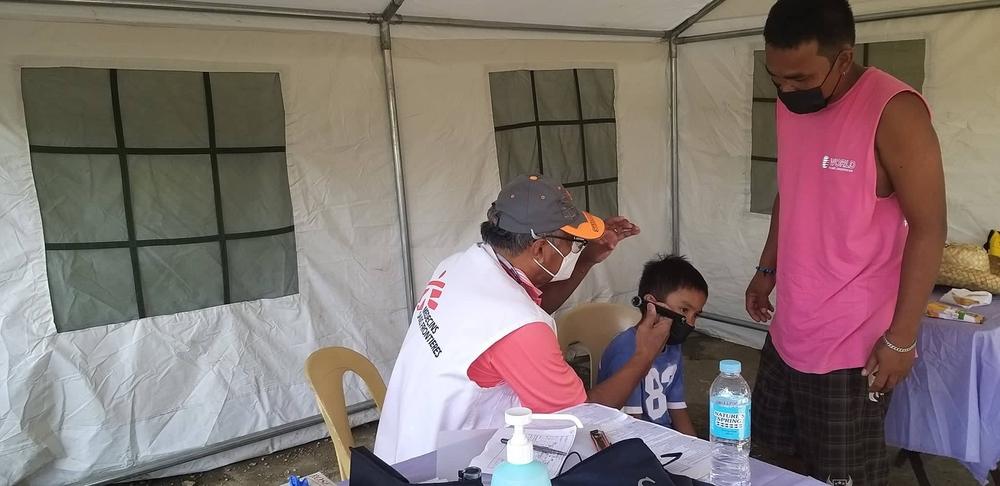
Dr. Raul Salvador seeing a patient during Doctors Without Borders mobile clinics around Dinagat Island Province. Philippines, 2022. © MSF
From January to March 2022, Doctors Without Borders / Médecins Sans Frontières (MSF) mounted an emergency response in Dinagat Island Province and the outlying islands of Surigao City, in the southern Philippines which were severely affected by Typhoon Rai (locally named Odette) in December 2021.
Over two months, Doctors Without Borders teams supported local hospitals and visited remote communities to bring much-needed medical aid and hygiene kits. Emergency coordinator Regidor Esguerra reflects on the work done in Dinagat and the nearby islands.
“I arrived at Dinagat a month after the typhoon, and there were still significant humanitarian and medical needs at the time. Access to basic medical services and relief goods was limited. Medical service delivery was also very limited because of logistic issues and infrastructure damage to health structures, such as the district hospitals, barangay (community) health centres, and COVID-19 isolation centres.”
Medical services disrupted in coastal and inland communities
Before the typhoon, many of the coastal and inland barangays of Dinagat and Surigao were only visited by a medical doctor once a month. After the typhoon, such visits became much more difficult. In addition to these barangays being geographically inaccessible, the local healthcare system was also struggling; there were gaps in medical staff, logistics limitations in moving essential medications and supplies, and the lack of availability of medications, particularly those for non-communicable diseases. In some places, no other medical responders had been able to visit, or medical teams were able to visit only once.
Our teams focused on these hard-to-reach areas, and often communities told us that we were the first medical team to visit their barangay. Even though it had been a month since the typhoon, we could see clearly there was still a need for medical care, shelter and access to clean drinking water.
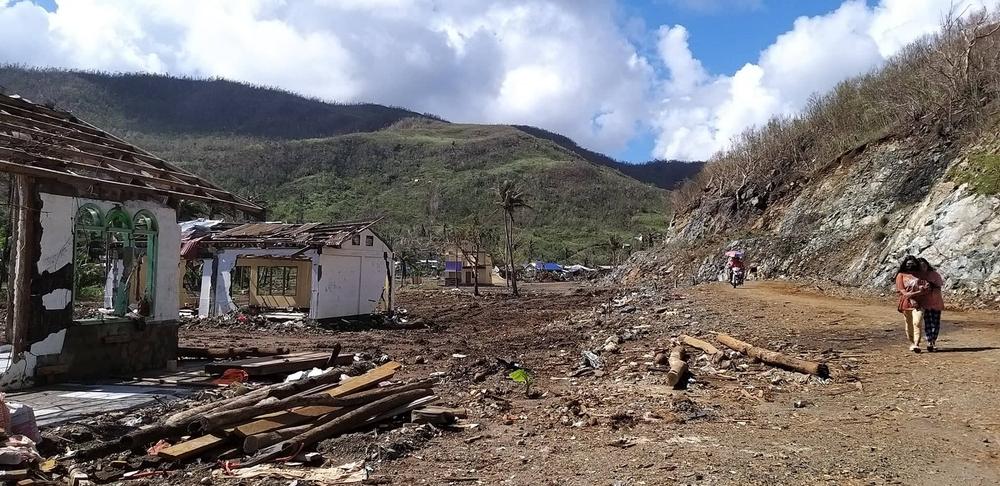
There is much work that remains to be done. Doctors Without Borders activities have been closed, but the recovery and reconstruction efforts must continue. Philippines, 2022. © MSF/Raul
Throughout the province of Dinagat Island, and in the outlying islands of Surigao, we focused on providing basic healthcare services, by doing direct medical consultations in the affected barangays. With these mobile clinics, not only did we address medical needs, we also worked on the prevention and control of diseases with outbreak potential, such as watery diarrhoea. In Siargao Island, Doctors Without Borders focused on two municipalities – Burgos and Santa Monica – where we donated medicines for non-communicable diseases as well as COVID-19 home isolation kits. We also provided trainings on mental health and psychosocial support for medical personnel, government staff, teachers, police and community volunteers.
Beyond the medical: recovery, reconstruction and mental health support
Beyond medical consultations, to provide additional support to the local healthcare system, we worked with two district hospitals to provide medical staffing resources: a doctor and a midwife. To directly support the communities, we distributed over 4,000 hygiene kits and non-food items (NFI) kits, and donated COVID-19 home isolation kits. Because much of the local infrastructure were badly damaged, particularly health structures, our teams distributed repair kits to seven barangay health centres (BHC) and to Dinagat District Hospital. Many homes suffered damage as well, and Doctors Without Borders distributed 1,000 carpentry kits in eight barangays to help with recovery and reconstruction.
During our mobile clinics, we identified a large number of people who needed mental health support. Though we added mental health and psychosocial support activities to our mobile clinics, in our view there is a need to provide greater emphasis on mental health activities in the community level. This can be done through awareness of the services, provision of psychological first aid (PFA) and psychoeducation, and capacity building for local medical personnel, especially the barangay health workers.
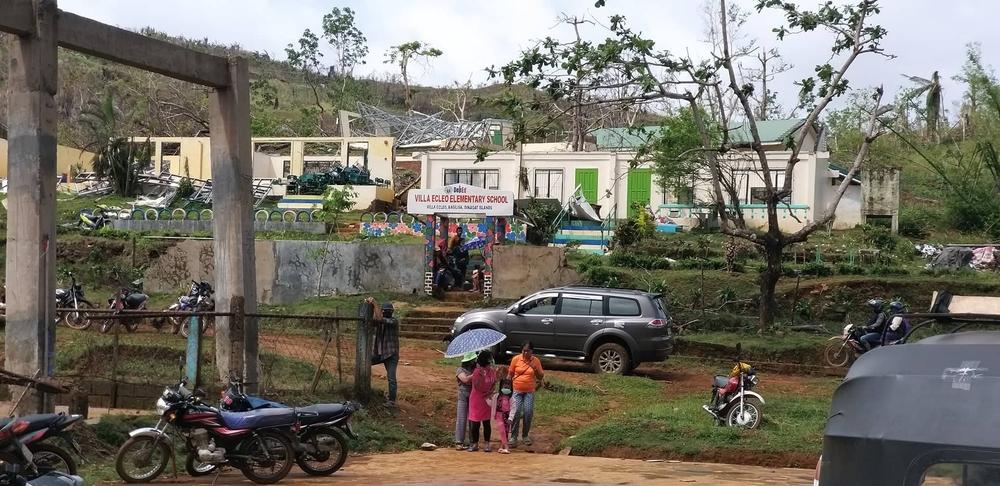
More than two months after Typhoon Rai (local name Odette), villages like Villa Ecleo in Basilisa, Dinagat Island Province, are still in ruins. Doctors Without Borders supported the local communities with temporary repairs for the health structures, and carpentry kits for the damaged homes. Philippines, 2022. © MSF/Raul
Closing the project
After two months, we now ending our emergency response, but there is still much work to be done.
Supporting the urgent medical needs of the community did not just provide relief to patients, but also to the local medical staff who lost their homes or needed respite from their work. While Doctors Without Borders focused on temporary repairs for the health structures, medical personnel and health workers were able to organise their service delivery and other routine medical programmes such as vaccinations, nutrition and feeding program.
Now, we have observed that illnesses are going down and are under control. The local medical activities and services have started to recover and are receiving support from other medical stakeholders aside from Doctors Without Borders. The Department of Health of Caraga region recently opened a field hospital for life- and limb-saving surgeries in Dinagat Island, which is why Doctors Without Borders will now stop facilitating emergency referrals as this field hospital will be in operations until July 2022.
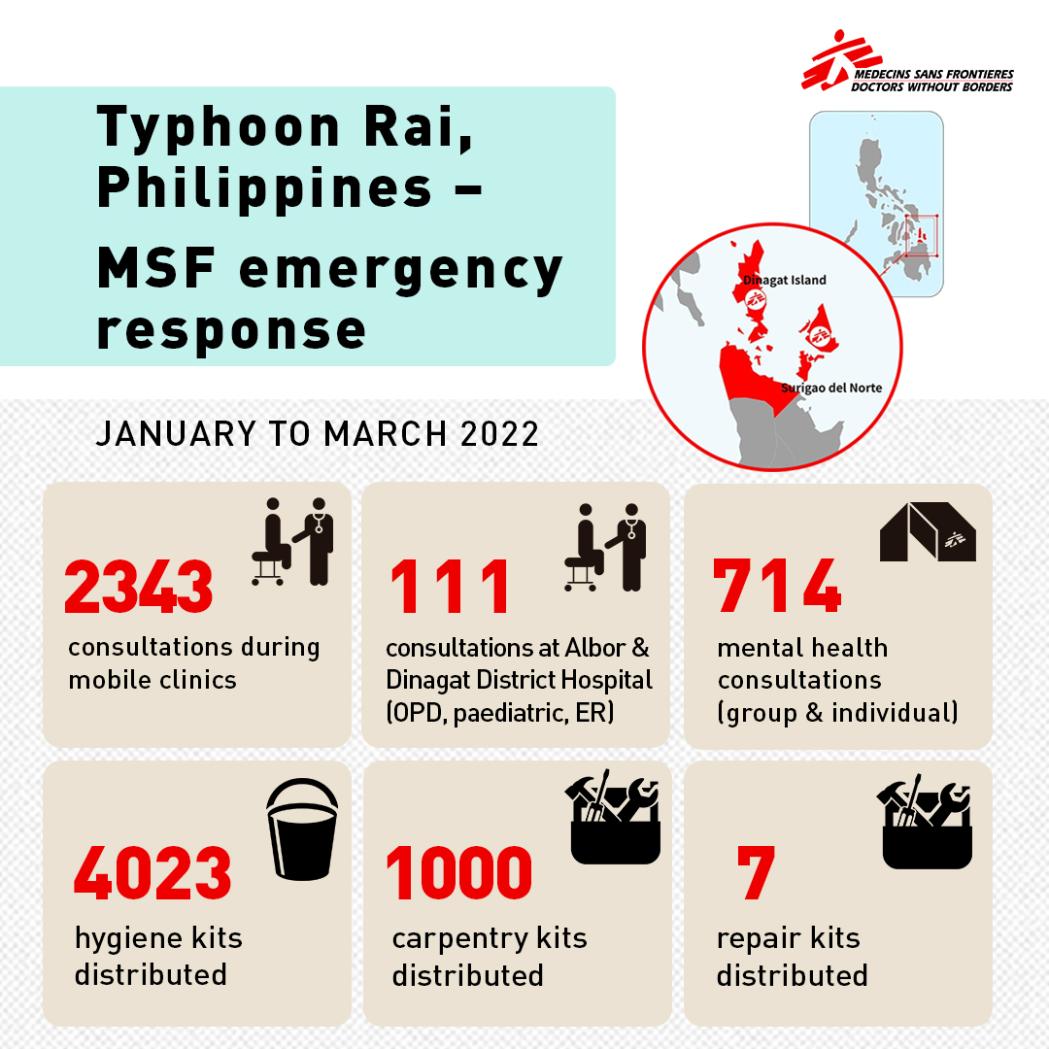
After supporting urgent medical needs, strengthening local capacity, and reaching the most remote communities with Doctors Without Borders' logistics capacity and flexibility, our activities in Dinagat Province have ended. But more can be done in terms of recovery and reconstruction, in terms of shelter, roofing, and support for damaged houses.
Mental health activities on the community level must continue, not just to build the capacity of the health workers to conduct psychological first aid and psychoeducation sessions, but also to create a working referral pathway for people with severe mental health disorders. There must be more attention paid to children and adolescents with special needs.
Local healthcare workers noted that, before the typhoon, the number of people seeking medical services in the community level was low. After the typhoon, people in Dinagat were constantly accessing the services and are more aware of the various services offered in their respective health centres. With efforts concentrating on health promotion activities, there could be much improvement in the health-seeking behaviour of the local community.

